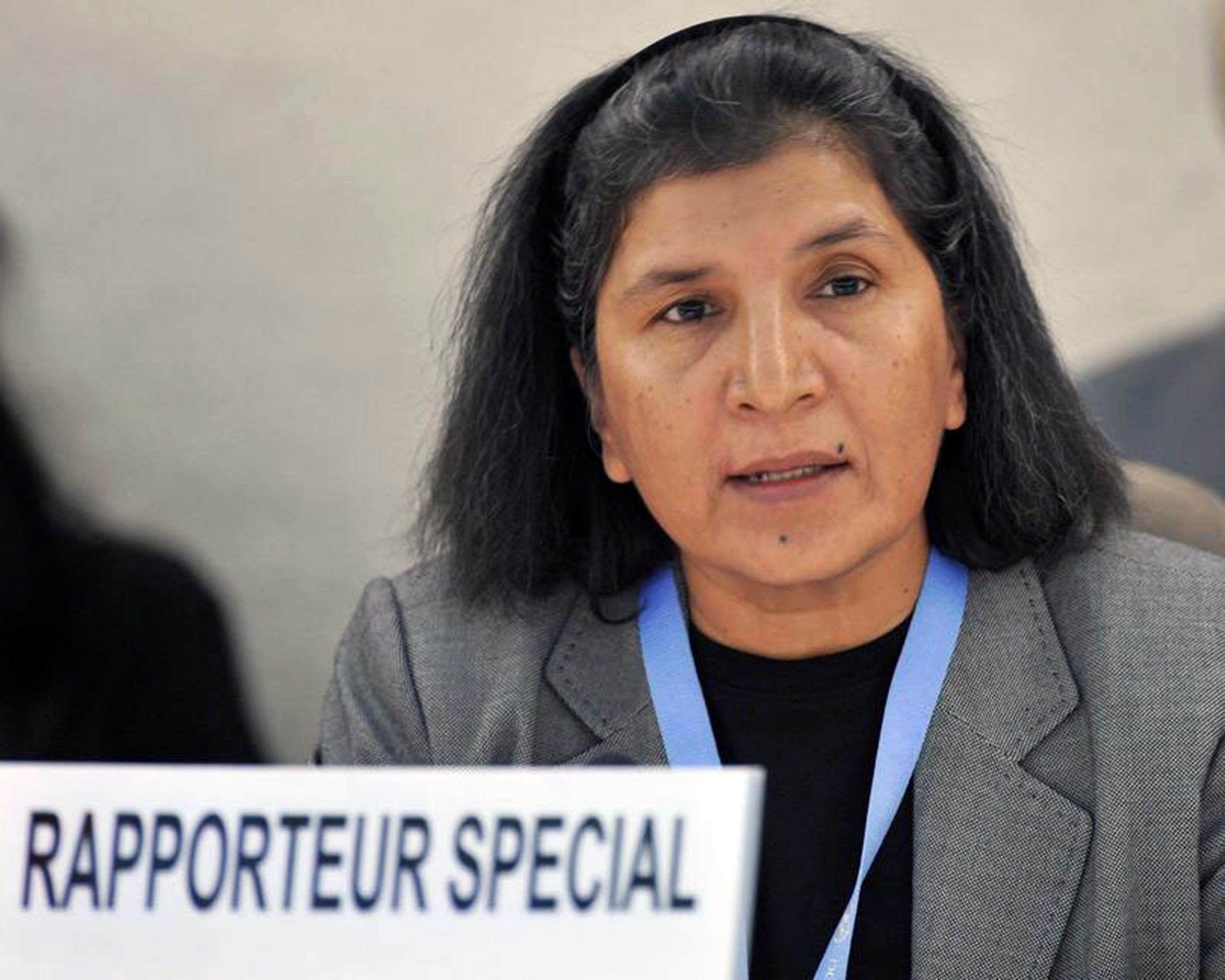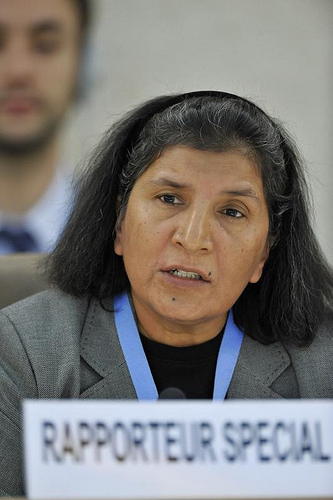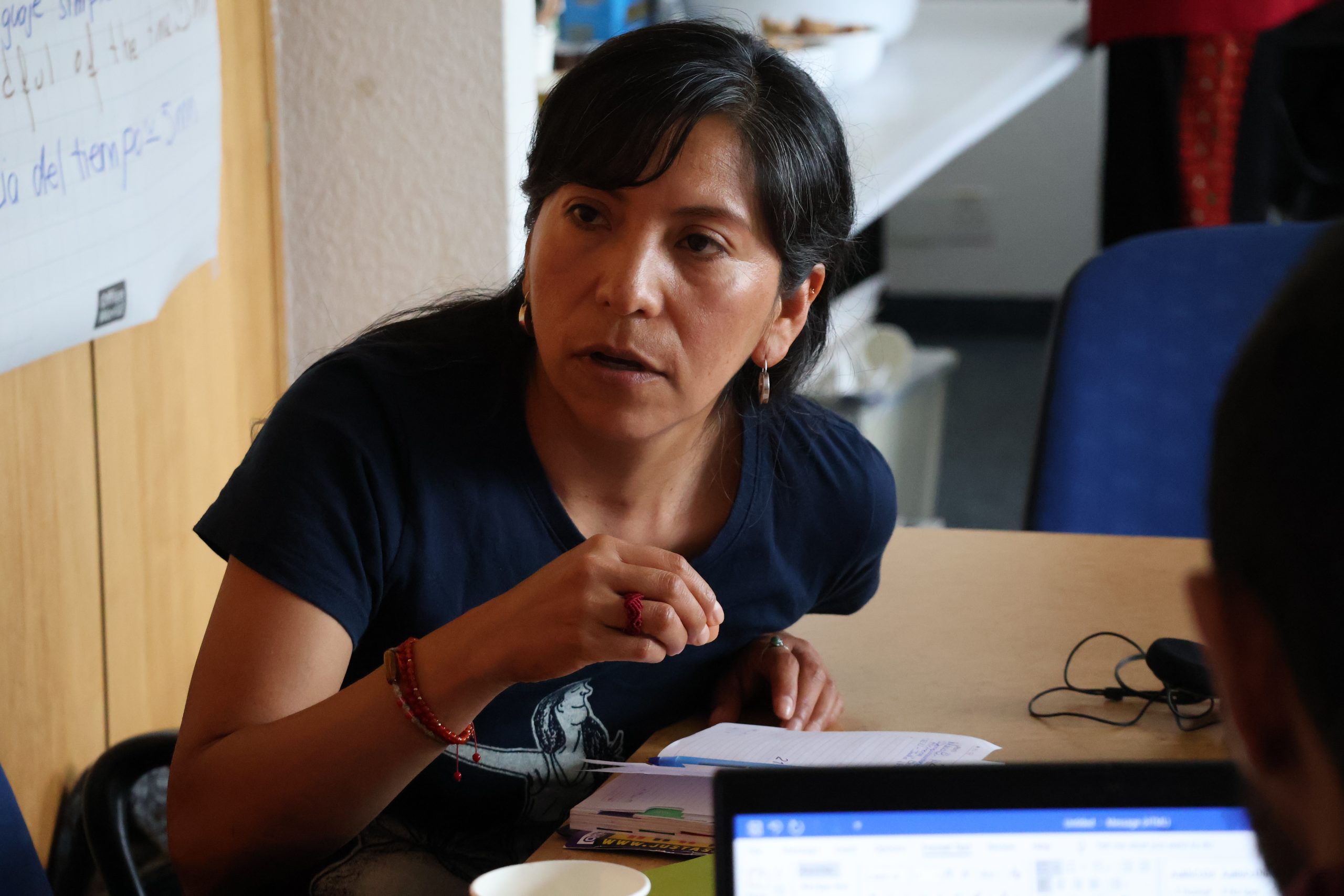
Egypt: Reform unjust vice laws, guarantee open civic space
During Egypt's UPR adoption at HRC59, Nora Noralla delivered a joint statement on behalf of ISHR, Cairo 52 and Middle East Democracy Center. Watch and read the full statement below.

It is time for the United Nations to develop a new international treaty and monitoring body to prevent and seek remedy and accountability for violence against women and girls, writes Rashida Manjoo.
By Rashida Manjoo, UN Special Rapporteur on violence against women and girls
 This year marks the twentieth anniversary of the establishment of the mandate of the Special Rapporteur on violence against women, its causes and consequences. Thus it provides an opportunity to reflect on global developments towards the elimination of all forms of violence against women and girls, and to also identify new and remaining gaps and challenges.
This year marks the twentieth anniversary of the establishment of the mandate of the Special Rapporteur on violence against women, its causes and consequences. Thus it provides an opportunity to reflect on global developments towards the elimination of all forms of violence against women and girls, and to also identify new and remaining gaps and challenges.
Violence against women and girls is a pervasive and widespread human rights violation that is experienced by women across the globe. It has reached epidemic proportions in some parts of the world and no country is succeeding in eliminating this human rights violation. A recent WHO report indicates that violence against women is the foremost cause of death and disability among women.
Although progress has been achieved in advancing women and girl’s human rights and also gender equality at the national, regional and international level, there are gaps and challenges that have not been addressed adequately. Continuing and new sets of challenges that hamper efforts to promote the human rights of women and girls can be linked largely to the lack of a holistic approach that addresses individual, institutional and structural factors which are a cause and a consequence of violence against women and girls. Moreover, through the work of the mandate, my predecessors and I have observed that a culture of impunity persists and this contributes to the impossibility of achieving the goal of a life free of violence for women and girls.
My recent report to the General Assembly addressed an often-overlooked impact of violence against women and girls, i.e. its role in obstructing the realization of their citizenship rights, thereby precluding participation, autonomy and agency of women and girls as full citizens in their communities. Human dignity and the rights to freedom, non-discrimination and equality lie at the heart of the human rights regime and provide the necessary conditions for human agency in exercising citizenship rights. Violence against women and girls, whether in the public or private spheres, contributes to impeding the realization and enjoyment of a broad range of human rights that are essential to the exercise of full, inclusive and participatory citizenship of women and girls.
My 2013 report to the Human Rights Council reiterates that State responsibility to act with due diligence requires that there is a framework for discussing the responsibility of States through a dual lens of individual due diligence and systemic due diligence. Individual due diligence refers to the obligations that States owe to particular individuals, or groups of individuals, including to prevent, protect, punish and provide effective remedies. Individual due diligence places an obligation on the State to assist victims in rebuilding their lives and moving forward, and also requires States to punish not just the perpetrators, but also those who fail in their duty to respond to the violation. Systemic due diligence refers to the obligations that States have to ensure a holistic and sustained model of prevention, protection, punishment and reparations for acts of violence against women and girls.
My 2014 reports to the Human Rights Council and to the General Assembly also raise concerns about the continuing challenges in the quest for elimination of violence against women, including: the shift to gender neutrality; the persisting public-private dichotomy in responses to violence against women; the failure of States to act with due diligence in eliminating violence against women; the lack of transformative remedies that address the root causes of violence against women, including individual, institutional and structural aspects; the financial crisis, austerity measures and cuts in social services spending; the shift in the understanding of gendered responses and the move towards a focus on men and boys; and the lack of a legally binding instrument to hold both States and non-state actors accountable for this human rights violation, as a violation in and of itself.
On the latter point, due to my concerns about the normative gap under international human rights law in respect to violence against women and girls, I have recommended that there needs to be an enquiry by the Human Rights Council and the General Assembly. The approach of States is one of ‘normativity without legality’ and is reflected in the endorsement of principles by States, through resolutions, but without the development and adoption of specific binding legal commitments as regards violence against women. This issue raises crucial questions about State responsibility to act with due diligence, and also the responsibility of the State as the ultimate duty bearer to protect women and girls.
Concerns raised more than two decades ago reaffirm my view that it is time to consider the adoption of a United Nations binding international instrument on violence against women and girls, with its own universal monitoring body. Such an instrument would ensure that States are held accountable to standards that are legally binding; it would provide a globally applicable comprehensive normative framework for the protection of women and girls from all forms of violence; it would have a specific monitoring body to substantively provide in-depth analysis of both general and country-level developments; and it would serve an educative function.
Transformative change requires a shift in thinking as regards normativity and it requires commitment, courage and an ethic of care that supersedes vested interests, entrenched positions, and also the challenging of the status quo, including the continued use of arguments that were used twenty years ago to avoid addressing the normative gap under international human rights law as regards violence against women.
Rashida Manjoo is UN Special Rapporteur on violence against women, its causes and consequences.
For more information about this session of the Third Committee of the General Assembly, contact Michelle Evans at [email protected]
For more information about ISHR’s work on women’s rights and women human rights defenders, contact Pooja Patel at [email protected]
Photo: UN Photo

During Egypt's UPR adoption at HRC59, Nora Noralla delivered a joint statement on behalf of ISHR, Cairo 52 and Middle East Democracy Center. Watch and read the full statement below.

At the Human Rights Council, Belgium delivered a statement on behalf of over 60 States that 'pays tribute to the numerous achievements and meaningful progress made by women and girls human rights defenders, and emphasises the continued need for their voices to be heard and supported'.

The 59th session of the UN Human Rights Council (16 June to 9 July 2025) will consider issues including civil society space, climate change, sexual orientation and gender identity, violence and discrimination against women and girls, poverty, peaceful assembly and association, and freedom of expression, among others. It will also present an opportunity to address grave human rights situations including in Afghanistan, Belarus, China, Eritrea, Israel and oPt, Sudan, Syria and Venezuela, among many others. Here’s an overview of some of the key issues on the agenda.